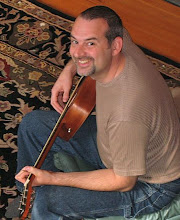English sentences are crafted to communicate thoughts, dreams, ideas, emotions, desires--the full range of human expression. Words are powerful. The right words can begin a relationship, and the wrong ones can sour one. Words can be as mundane as a technical conversation, as inspirational as a charasmatic speech, as meaningful as a lover's poetry.
I consider myself a decent writer, but I have grown a phenomenal amount learning about the subtleties of communication from the people I work closely with in Marcoms. I'm going to dedicate my very first post to my Marcoms friends. I have the greatest respect for their profession and their ability to craft the raw clay that I create into a work of art. I understand how the massive redlines and honing they do improves the final product. Although the work they often do is "invisible," our organization would be fraught with communication breakdowns without them. I do not invest my ego in my specific words; I wouldn't have it any other way.
And to them I apologize in advance. I can guarantee that my posts, my taglines, my thoughts, my ideas, all will be as raw as the first drafts they receive--full of split infinitives, ambiguous subjects, overused adjectives, unclear tense, mixed voice, dangling particples, non-parallel constructions, ending prepositions, and abused punctuation. But it is mine--every word of it. So, please read and enjoy. Hopefully I'll have something worthwhile to say that you'll want to listen to. But ya ain't correctin' my English.
Friday, September 18, 2009
Subscribe to:
Post Comments (Atom)




Andy, as one of your marcomm friends, I'm truly touched by your comments. And, for what it's worth, I think your writing is lovely, no matter how many redlines we like to throw at it.
ReplyDeleteThat said, the word is "subtleties". :-)